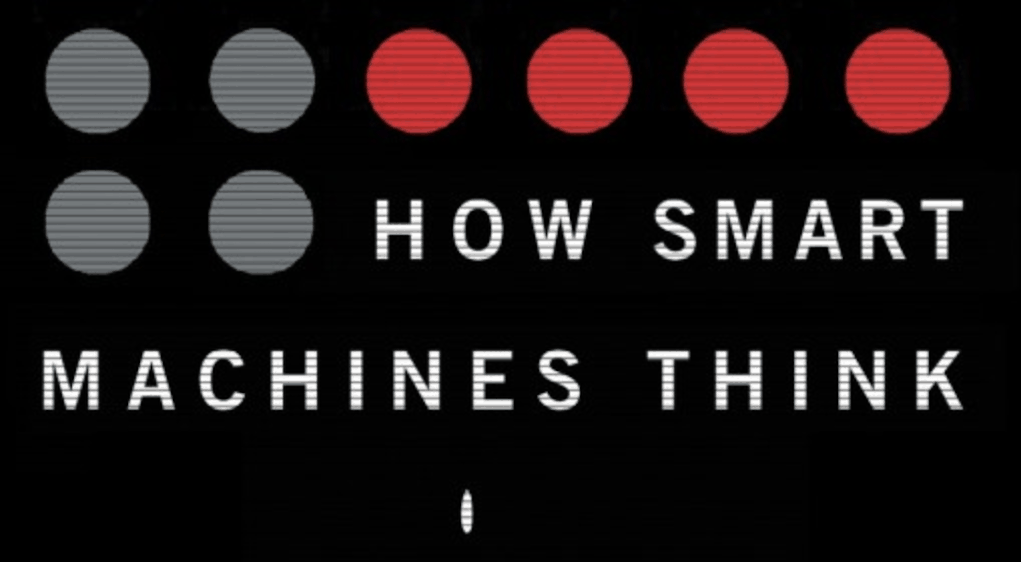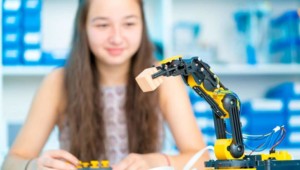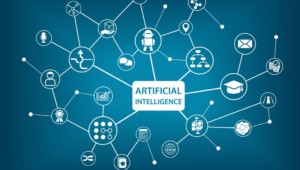Reading List: Nine Smart Books on Artificial Intelligence

Some great new books on artificial intelligence were published recently. We compiled a list of nine.
Dave Touretzky, CMU professor and chair of AI4K12, recommended four written for non-specialist adults, but they are also accessible to high school students.
How Smart Machines Think by Sean Gerrish. If you want to discuss recent AI achievements with your students, such as how self-driving cars work, how Watson beat two of the best human Jeopardy! players, how NetFlix uses AI to recommend movies to people, and how AlphaGo beat one of the best human Go players, this book is for you.
Architects of Intelligence: The Truth About AI From the People Building it. Martin Ford interviewed 23 of the leading names in artificial intelligence research, asking them about the state of the art and what the future holds. This book is an edited transcript of those interviews and is accessible to non-experts.
AI Super Powers: China, Silicon Valley, and The New World Order by Kai-Fu Lee. This book discusses the evolution of the Internet and AI technologies in China and the US, pointing out both similarities and differences. China’s stated goal of becoming the leader in AI research by 2030 has attracted a lot of attention. How might differences between Chinese and American cultures contribute to such an outcome? Read Lee to find out. (See this essay-length summary.)
The Deep Learning Revolution by Terry Sejnowski who directs the Computational Neurobiology Laboratory at The Salk Institute for Biological Studies. Sejnowski played an important role in the development of deep learning. His new book prepares us for a deep learning future.
Social Science. Bit by Bit: Social Research in the Digital Age by Princeton professor Matthew Salganik. Recommended by Neil Lawrence, Amazon Research Cambridge, Bit by Bit is a guide to doing social science research in the automation age. In a nontechnical but comprehensive way, he lays out a principles-based approach to handling ethical challenges.
Revealing the Invisible: How Our Hidden Behaviors Are Becoming the Most Valuable Commodity of the 21st Century by Tom Koulopoulos (@tkspeaks), the author of 10 books and founder of the Delphi Group, a 30-year-old Boston-based think tank. His new book reveals this disruptive new era where our behavior is tracked and used to predict our individual and collective futures.
Public Policy. Shaping the Fourth Industrial Revolution by Klaus Schwab and Nicholas Davis (with forward by Satya Nadella). Published by the World Economic Forum, this book is a general audience summary of the automation economy. It explores 12 different areas (each influenced by AI) central to the future of humanity. The book is complemented by a variety of online resources.
HigherEd Textbook. Artificial Intelligence: A Modern Approach (3rd edition, 2016) by Russell and Norvig remains the standard text for undergraduate AI courses. Dave Touretzky said he taught with it last semester and finds it great for upper-level computer science majors but too technical for non-specialists.
K-12 Guide. Teaching AI: Exploring New Frontiers for Learning by Michelle Zimmermann, head of school at Renton Prep. The new book was published by ISTE with a grant from General Motors to support the development of new resources on AI in K-12 education.
Each chapter opens with a scene featuring diverse settings and characters. Zimmerman connects the dots between seemingly unrelated topics and concludes each chapter with questions for further study. Zimmerman concludes that the automation economy demands design thinking and project-based learning. (See our review.)
Other Resources. For more, see:
- Kyle Barriger, Jr. teaches an AI class at the Castilleja School. A bibliography of course materials can be found here.
- 10 part Work in the 4IR podcast from World Economic Forum
- What K-12 Students Should Know About Artificial Intelligence
- Why Every High School Should Require an AI Course
- It’s Time to Add AI to Your Robotics Competition
- An Inside Look – America’s First Public School AI Program
- Why Social Studies is Becoming AI Studies
This post is a part of the Getting Smart Future of Work Campaign. The future of work will bring new challenges and cause us to shift how we think about jobs and employability — so what does this mean for teaching and learning? In our exploration of the #FutureOfWork, sponsored by eduInnovation and powered by Getting Smart, we dive into what’s happening, what’s coming and how schools might prepare. For more, follow #futureofwork and visit our Future of Work page.
Stay in-the-know with innovations in learning by signing up for the weekly Smart Update. This post includes mentions of a Getting Smart partner. For a full list of partners, affiliate organizations and all other disclosures, please see our Partner page.








tom
Here is #10: Surfing the Tsunami, Todd Kelsey http://www.tsunami.ai/
Tom Vander Ark
Add new book from Charles Fadel, CCR, Artificial Intelligence In Education: Promises and Implications for Teaching and Learning. Reviewed here https://www.gettingsmart.com/2019/04/smart-review-the-promise-and-implications-of-artificial-intelligence-in-education/